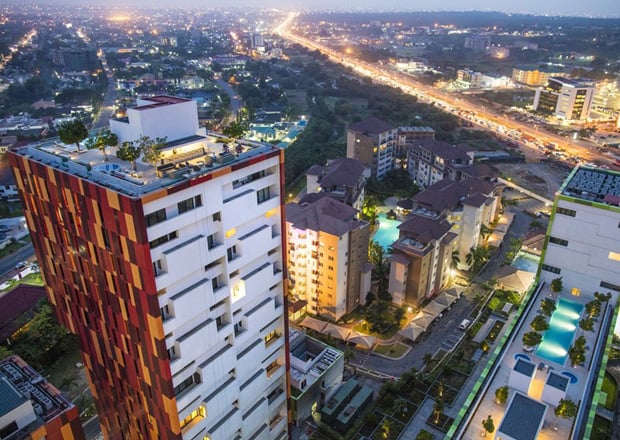A major lesson from the past few years is that technology will continue to drive the growth of almost every sector of the economy. Mobile technology in particular remains a cornerstone, with mobile penetration contributing to the sector’s vibrancy.
The proliferation of smartphones has opened up new opportunities for innovation, fostering the growth of mobile applications that address local needs.
Mobile banking, health and education apps are gaining popularity, underscoring the positive impact of technology on various sectors.
Government’s commitment to digital literacy
The government’s pledge of US$2.6million to establish innovation centres across the country underscores its commitment to bridging the technology usage gap.
With a focus on equipping 3,000 Ghanaians with digital literacy by the next year, the Deputy Communications and Digitalisation Minister, Ama Pomaa Boateng, emphasised the government’s dedication to ensuring that no one is left behind in the digital revolution.
“The government is not relenting on its promise to ensure that no one is left behind,” she said during this year’s World Telecommunication and Information Society Day (WTISD).
Global recognition and challenges
Ghana’s digital ecosystem has earned recognition as one of the best-performing sectors, growing at an impressive 19 percent annually between 2014 and 2020, according to the World Bank. However, global estimates by the United Nations and ITU reveal that over 2.7 billion people worldwide lack connectivity. In this context, Ghana’s commitment to further digital transformation is commendable.
Currently, Ghana is among the digital leaders in sub-Saharan Africa; and the Digital Economy diagnostic conducted in 2020 identified key bottlenecks that need to be removed to further accelerate the country’s digital transformation, the World Bank stated.
Infrastructure development and connectivity efforts
The investments in ICT infrastructure have resulted in extensive land fibre coverage, acting as a backbone for broadband deployment. The country benefits from connections to five international submarine cables, contributing to its digital leadership in sub-Saharan Africa.
The Rural Telephony and Digital Inclusion Project (GRT&DIP) further demonstrates the commitment to extending connectivity to underserved and unserved communities.
Ongoing challenges and call for more investments
Despite significant progress, Deputy Minister Ama Pomaa Boateng acknowledged that more investments are needed to ensure universal access to Information and Communication Technology (ICT) tools. She also recognised that increased access to digital devices is crucial for meaningful interaction and online transactions without barriers. The recognition of this need highlights a forward-looking approach to address the digital divide comprehensively.
“Citizens must have access to devices to be able to interact meaningfully and also transact public and private services online without any barriers,” she says.
Empowering least developed countries (LDCs)
Ghana’s commitment to supporting Least Developed Countries (LDCs) through initiatives like the Partner2Connect Campaign aligns with a global push for universal and meaningful connectivity. The Deputy Director-General for Technical Operations at the National Communications Authority, Prof. Ezer Osei Yeboah-Boateng, underscored the importance of collective responsibility and collaboration to empower LDCs.
Legislative instruments for NITA’s role redefinition
The passage of draft Legislative Instruments (LIs) for the National Information Technology Agency (NITA) Act and the electronic transactions Act have been lauded by industry players and experts alike.
“Without regulation, the nation embarked on digital initiatives with no direction and was held captive by service providers who did as they pleased with no regard for the sustainability of initiatives, and interoperability of systems as ICT procurement for MDAs were done with no oversight and no set standards guiding it,” said Communication and Digitalisation Minister, Ursula Owusu-Ekuful.
National ICT Week
The launch of the maiden National ICT Week under the theme ‘Empowering Digital Transformation for Sustainable Development’ emphasises the essential role of Information Communication Technology (ICT) in achieving the country’s sustainable development goals. The week is expected to showcase impactful ICT initiatives, foster collaboration, and explore strategies for embracing digital solutions across various sectors.
Fiscal regime
The Ghana Fintech and Payment Association is warning against taxing the Fintech sector. As explained by its President Martin Kwame Awagah, taxing Fintech companies – often start-ups with limited resources – could impede their growth, innovation and ability to raise capital.
“Fintech companies are often start-ups with limited resources; therefore, taxing them would make it more difficult for them to raise capital and expand their operations,” he said.
“Fintech companies are already subject to several taxes, including corporate income tax, value-added tax and withholding tax. Adding an additional tax on electronic transactions would increase the cost of financial services for consumers and businesses,” he said in response to suggestions the government should consider introducing a sector specific tax for Fintechs.
Conclusion
Ghana’s multifaceted approach to digital transformation, encompassing infrastructure development, legislative reinforcement and collaboration with global and local partners sets a positive trajectory for the country’s digital future in 2023 and I expect it to continue in 2024.
The challenges posed by global connectivity disparities and the need for a careful consideration in taxing emerging sectors like Fintech highlights the complexity of navigating the digital landscape while ensuring inclusivity and sustainable development.










